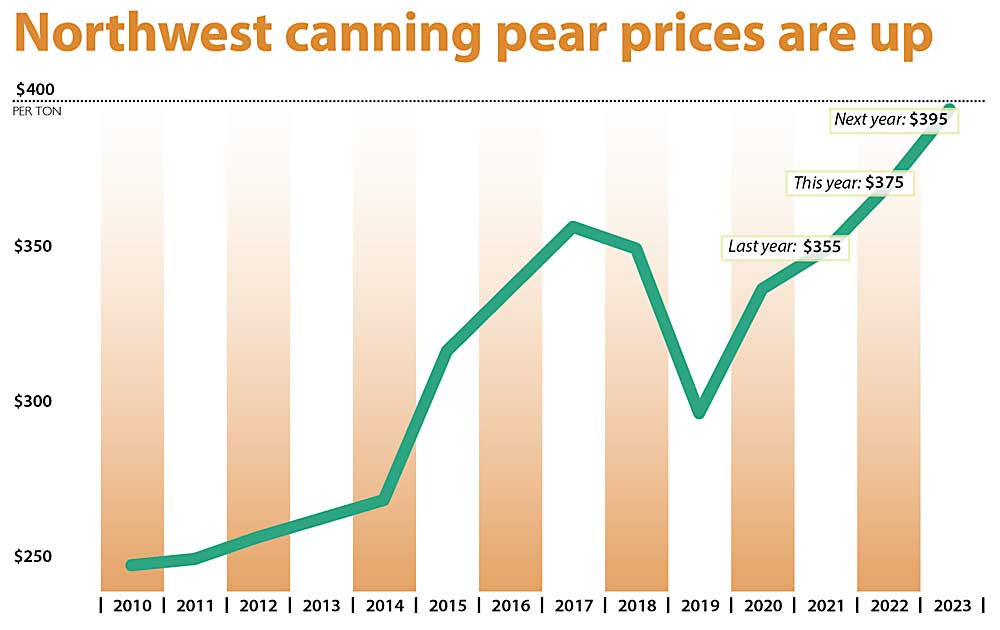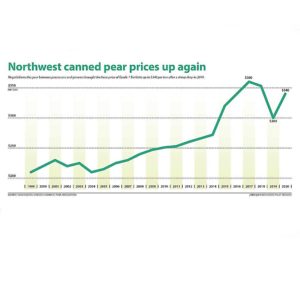Northwest Bartlett pear growers and processors are all going into the 2022 growing season with price negotiations already settled for a record $375 per ton.
“It’s the best news I’ve been able to give pear growers in years,” said B.J. Thurlby, president of the Washington-Oregon Canning Pear Association, which negotiates prices for growers under a federal marketing order with the two major canners. “Getting it negotiated early means growers can farm based on what their income is going to be.”
It’s a welcome change from the past few seasons, when tense negotiations stretched into the summer months, said Adam McCarthy, a Hood River, Oregon, grower and chair of the association.
“There’s two sides of the equation, and I appreciate the processors coming to the table and getting it done early,” he said.

The landscape of processing pears has changed significantly over the past few years, McCarthy said, with fewer imports coming in from China, lower inventory and lower supply after growers removed acres in response to the low prices in 2019. Also, the school lunch market is recovering.
“Everyone is optimistic we are back on track,” he said.
Enough acreage came out that canners now want to make sure they have the supply available in the ground to meet demand, Thurlby said during a meeting of the Washington State Fruit Commission this week. To help keep growers in business, the negotiators settled on a two-year deal, locking in $395 per ton for 2023.
“This is a good deal for both sides,” said Steve Carlson, field manager for Del Monte, the region’s largest canner. “And we don’t have to worry about it for next year, either.”
The Neil Jones Food Co. of Vancouver, which pulled out of collective negotiations in 2019, also agreed to the two-year deal.
About 65 percent of the Bartlett crop typically meets the highest grade, at 2.5 inches or larger, which will return $394 per ton this year, and $414 per ton next year, Carlson and Thurlby added.
After the difficult 2019 season, Thurlby and the association gained the support of Washington lawmakers in 2020 to compel the canners to negotiate with the association and set a mediation process if a deal could not be reached.
McCarthy said that legislation has brought more balance to the price discussions, but all parties understand that it’s a mutually beneficial relationship.
For growers, having the price in mind this early in the season allows them to decide how they want to manage their crop load and size targets and make more informed decisions about input costs for pruning, preventative pest management and frost control, McCarthy added.
—by Kate Prengaman







Leave A Comment